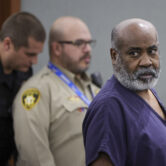MANHATTAN (CN) — A federal appeals court in New York heard oral arguments Thursday over who should keep the copyright to the blockbuster horror film “Friday the 13th.”
At issue is whether screenwriter Victor Miller wrote the screenplay in 1979 as an independent contractor as he claims, or as an employee of the film’s producer which would make the screenplay a “work for hire” and allow the companies Horror Inc. and the Manny Co. to hang on to the copyright.
A federal judge in Connecticut determined in 2018 that Miller could take back the copyright to the screenplay, for which he was initially paid just $9,282. The production companies appealed to the Second Circuit in lower Manhattan.
Kathleen Sullivan of Quinn Emanuel Urquhart & Sullivan argued Thursday for Horror Inc. and the Manny Co., which don’t want to lose the copyright. She said there was legal error in a prior case in which the court deemed a union contract irrelevant. Miller’s membership in the Writer’s Guild of America and the benefits afforded to him by the union’s collective bargaining agreement, she said, make him an employee.
“There’s all kinds of benefits [Miller’s] got” as a result of his membership in the union, Sullivan said. “He’s in the heartland of the bargaining unit.”
In 1979, a year after the success of the low-budget horror film “Halloween” had whet producers’ appetites, Miller was paid a lump sum of $9,282 for his screenplay and what is known in the business as a treatment.
The slasher flick went on to gross over $39.7 million at the U.S. box office, and 10 years later Miller wrangled another $27,396.46 to settle his disputes over residuals. Since then, Miller secured an additional $200,000. He was hit with a lawsuit in 2016, however, after serving three notices on the successors of the film with the intent of terminating their copyright.
Sullivan waved around a copy of what she called “the Bible of a screenwriter’s life,” the benefits afforded by the agreement. The Writer’s Guild couldn’t have gotten all those benefits if people were not employees, she argued.
U.S. Circuit Judge Susan Carney, a Barack Obama appointee, pointed out Sullivan had been focused largely on the labor rights context for the law rather than on copyright context, which is the crux of the case.
Another factor is who exercised control over Miller’s writing process; the more control Miller had, the more likely he’d be an independent contractor. Sullivan said the issue of control is “hotly disputed.”
Arguing for Miller, famed intellectual property attorney Marc Toberoff said the writer had had control of his work.
“In any situation where you’re writing a screenplay, the director, producer … they’re always going to make comments,” he said.
“He [Miller] worked from home, chose his own hours, was paid a flat sum,” and used his own equipment, Toberoff added later. He also pointed out that Horror and Manny have acknowleged they didn’t supply any direct employment benefits such as pension or health insurance. That the Writer’s Guild has a health plan, he said, doesn’t change things.
In what Toberoff characterized as the “golden age” of cinema, “writers worked, like, in a sweatshop — they were employees,” he said. But since the demise of studio system in the 1950s, he said, almost all screenwriters work as freelancers. The rare exception is staff writers on long-running television shows.
“My only regret is that this hearing is on Thursday the 13th, instead of Friday,” lamented Toberoff at the end of his remarks, to delighted laughter in the courtroom.
U.S. Circuit Judge Ralph K. Winter Jr., a Ronald Reagan appointee, joined by phone. U.S. Circuit Judge John M. Walker Jr., a George H.W. Bush appointee, joined Carney on the Manhattan bench.
Subscribe to Closing Arguments
Sign up for new weekly newsletter Closing Arguments to get the latest about ongoing trials, major litigation and hot cases and rulings in courthouses around the U.S. and the world.








